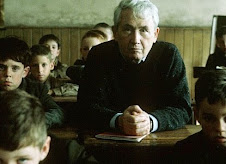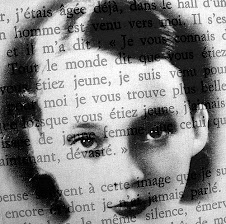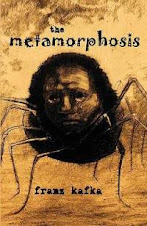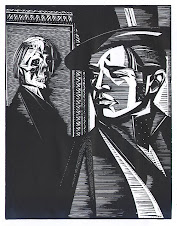I must say that I don't entirely like the style of the novel (I absolutely hated it at first), but the plot makes it rather difficult to put the book down. I think that if it were written differently, it would have been easier to follow and perhaps more enjoyable, but thinking about it, it needs to be choppy and difficult.
The content is quite controversial in that we are listening to a really young girl talk about her sexual relationship with an older man, insinuating a sexual relationship with one or both of her brothers, a lust for a young classmate (Helene Lagonelle) and mentioning some quite sinister thoughts. She talks of a desire to kill her brother, to watch her mother die, to ravage her classmate, etc.
The girl seems kind of crazy but she is completely open and unapologetic, which makes it a little easier to read and possibly accept. I honestly don't know how to feel about the novel. The more I think about it, the more intrigued I am. Discussing the parallels of death and pleasure throughout the novel with two of my classmates helped me to understand Marguerite a little more clearly. It seems like she is never fully satisfied, never allows herself to be completely overcome by a desire or emotion and that seems to be because she doesn't want to be consumed by anything, to succumb and therefore die. A clear example of that is the acceptance of the fact that she will never marry. She also uses the phrase "unto death" I don't know how many times throughout the novel. By never allowing herself to take something to completion, she can't take it forgranted. Perhaps passion can never have a forever, it has to be fragile and shortlived.
Subscribe to:
Post Comments (Atom)









It is funny how literature plays with us. We think we have "power" of sorts as we choose what texts to read and when and how to read them. Yet, it always happens that the text imposes its rules over us, tricks us, etc.
ReplyDeleteYou say the novel is disturbing because it is a teenage girl speaking about a lot of disturbing things.... and yet: Isn't it that it is a very old woman who is remembering and retelling aspects of her life when she was a young girl? The fact that this young girl has grown up to become the persona of a famous French novelist, who is "novelizing" intimate stories of her life, is perhaps even more disturbing. All that awfulness: poverty, madness, incest, sexual abuse... lead not to devastation but to material success and literary fame, not because the "young girl" overcomes her handicaps and her tragedy but because she resides in them. Yikes. As Pilar Adón puts it:
Any reader of Un barrage contre le Pacifique (Gallimard, 1950) or of L'amant (Minuit, 1984) will discover that this first data about her biography are already familiar. Because reading Marguerite Duras' books also implies reading her own life. In a real act of literary vivisection, she extracted her own pain, she filtered it through the balsam of writing and then she offered it all to the reader. And this reader had to find out that what he or she was reading was not only the account of the vital subsistence of a woman writer, but also the individual evolution of every character in her books that, at the same time, were a novelistic reflection of what really happened to thousands of human beings throughout the twentieth century. Marguerite Duras offers us in her books a description of different crucial moments at different places of the world. A description so reliable as that of any good historian, but with a very important matter added: she shows the suffering, hope and compassion of those genuine figures of our history.
i completely agree with you. at first the vignette style is almost abrasive and it makes reading very choppy. also her unapologetic behavior is actually what reeled me into the plot. I found it eerie that at 15 she was so cynical and negative about life and i felt like she had a depressed childhood despite the sexual passions she discovered. Perhaps there is somethign there to be said about children that grow up too fast and experience adult life before they are ready to face the cruelties of it.
ReplyDeleteDefinitely. Her passions "unto death" could be seen as destroying her innocense and childhood- as said by another classmate- consciously destroyed in order to assert her sexuality before it could be taken away from her. Assuming that her brother had raped her sometime after her relationship with the man from Cholon began.
ReplyDelete